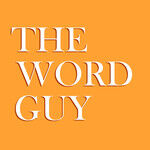One of the most interesting things about reporting and writing about aging and longevity, as a journalist with fresh eyes and skin in the game, is discovering just how many so-called experts are frauds, chiselers or otherwise full of it.
Trigger warning: This column may call out your favorite source for fitness or anti-aging advice for being a fraud, a charlatan and/or generally untrustworthy. But as always, I'll provide evidence to back up my conclusions.
When I first began researching health and wellness medicine and aging-related advice, I turned to YouTube, which was then and remains today a vast and unpredictable Wild West of opinion and conjecture masquerading as helpful information — little of which should be automatically trusted. By nature, I'm rather trusting of people, including people on YouTube. But I'm also a trained reporter, with 30 years of experience listening carefully to what people say, from Rikers Island inmates to European heads of state. My journalism background has made me quite competent in the subtle art of detecting what older folks from Southern Illinois might politely call "crapspackle" — false, misleading or unsupported information presented as a treasure trove of science-backed fact — about aging optimally.
So, imagine the feeling, upon witnessing a baritone-voiced Stanford neuroscientist (that's your first clue about one of the charlatans I'm going to name below) look directly into the camera and explain why a specific longevity supplement, immune system enhancer or blue-light-blocking pair of glasses is a recommended buy. At first, that feeling is something akin to, "Wow, he's from Stanford, speaks in clear, understandable sentences, is serious and uses a lot of scientific terms and expressions — and he's a neuroscientist!"
Who doesn't want to believe what a neuroscientist, especially one who stares into your eyes through the internet and explains the importance of enhancing your sirtuin pathways, has to say? I certainly did. But then the reporter in me began noticing the truth shadings, the inaccurate assertions and, most of all, the undeclared financial incentives for promoting specific products and services.
Andrew Huberman is, of course, the Stanford neuroscientist I'm referring to. He's smart, convincing and sounds as if he knows a lot about such a broad spectrum of health and wellness science that, frankly, it's only human to feel almost thankful, at first, that someone is explaining it to you in digestible bits ... with product recommendations! Unfortunately, Huberman and his Stanford pedigree — which he mentions so often that that, alone, began to raise a red flag in my mind — is also widely criticized for being one of the top misinformation artists on the health and longevity social media circuit.
But he's hardly alone. Below I'll briefly describe the personalities who present themselves only as disinterested scientists explaining the facts but, in fact, venture beyond the science to promote theories based on conjecture, pseudoscience or a profit motive they don't make explicit.
Andrew Huberman — As he will continually remind you, he's a tenured neuroscientist at Stanford. In 2023, Stanford Magazine wrote a glowing feature about him and his on-air musings, which it called "the hottest podcast in science." He uses a lot of scientific jargon that gives the impression that he's a subject-matter expert on everything from neuroscience — which he may be, given that is his training — to sleep, physiology, skin care, muscle growth, hormones and human biology, immune function and, not least, aging. "Aging is not a natural consequence that we all will suffer," Huberman asserts, without evidence, in one of his many podcasts that are repackaged by other YouTubers for clickbait. "But rather, aging is a disease that can be slowed or halted." The problem is that statements like these and others Huberman makes are often not supported by medical science.
David Sinclair — Like Huberman, Sinclair, who is a tenured Harvard geneticist, sounds incredibly substantive and credible. But when you peel back his assertions, you find a history of overstating what science has actually proven about topics like slowing or reversing aging. In one conversation with Huberman, in fact, Sinclair claims that new scientific techniques can predict not only how many years someone will live but also "time of death." Which Sinclair says he can change. Unfortunately, Sinclair's claims often have financial motives that he doesn't make clear, and his history of overstating the science behind "reverse aging" has given him a less-than-stellar reputation among his peers.
Bryan Johnson — Johnson, a tech entrepreneur who famously spends millions of dollars a year in a quest to maximize his lifespan, hosts a series of conferences around the United States called the "Don't Die Summit." As the name implies, Johnson's goal is to prove that humans don't actually need to die, and that science can offer an off-ramp to what, along with taxes, the rest of us consider the number one inevitability in the universe. But what may be a noble quest is also a big business for Johnson, who sells a vast array of longevity supplements and nostrums that he claims can put anyone on a path toward immortality. How convenient.
Of course, Huberman, Sinclair and Johnson are not alone in overstating what the science says about aging with strength and longevity. They are only among the loudest of the charlatans claiming to give you breakthrough insights into living longer and stronger — especially if you're willing to give them your credit card information.
To find out more about Paul Von Zielbauer and read features by other Creators Syndicate writers and cartoonists, visit the Creators Syndicate website at www.creators.com.
Photo credit: julien Tromeur at Unsplash






View Comments